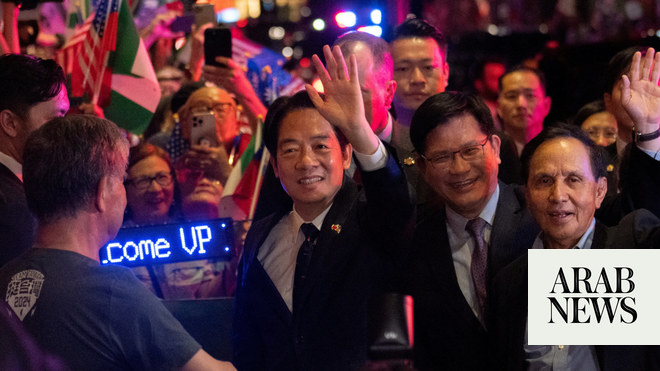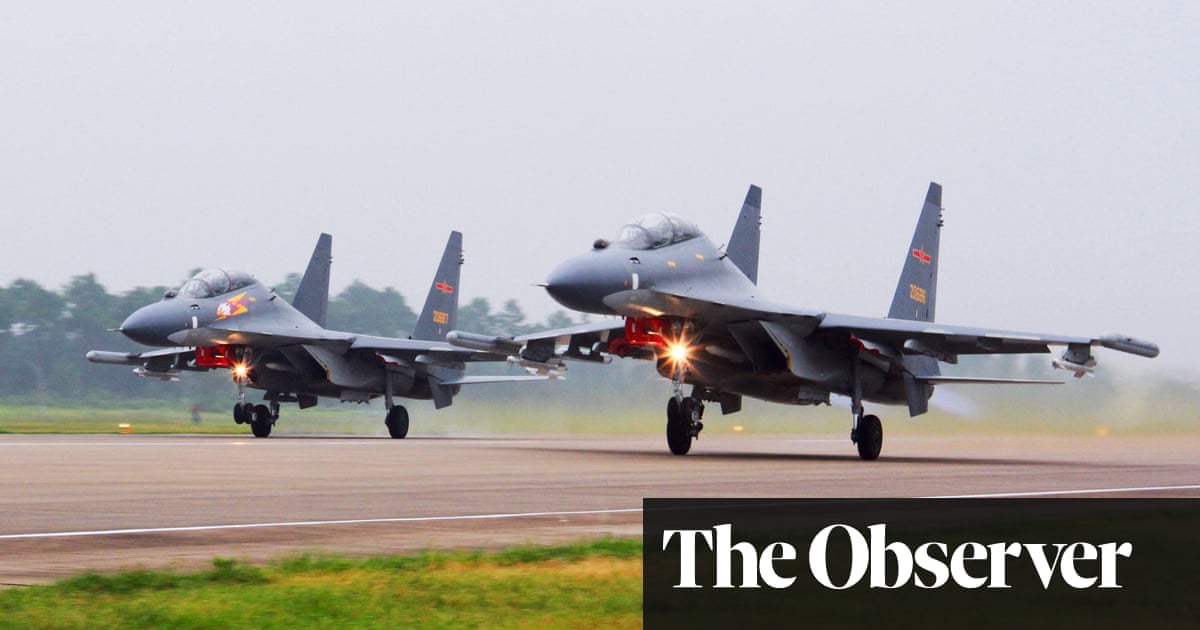
A US congressional delegation has arrived in Taiwan, days after China held military drills around the island in retaliation for the House speaker Nancy Pelosi’s visit.
The five-member delegation, led by Senator Ed Markey of Massachusetts, will meet President Tsai Ing-wen and attend a banquet hosted by the foreign minister, Joseph Wu, during the visit, according to Taiwan’s foreign ministry.
The American Institute in Taiwan said the US politicians would discuss “US-Taiwan relations, regional security, trade and investment, global supply chains, climate change, and other significant issues of mutual interest”.
Taiwan hailed the delegation’s visit as another sign of warm ties between Taipei and Washington. “The ministry of foreign affairs expresses its sincere welcome [to the delegation],” the ministry said in a statement. “As China is continuing to escalate tensions in the region, the US Congress has again organised a heavyweight delegation to visit Taiwan, showing a friendship that is not afraid of China’s threats and intimidation, and highlighting the US’s strong support towards Taiwan.”
The other members of the delegation are the Democratic members John Garamendi and Alan Lowenthal of California and Don Beyer of Virginia, and the Republican representative Aumua Amata Coleman Radewagen from American Samoa, according to the institute.
China’s embassy in Washington said on Sunday that “members of the US Congress should act in consistence with the US government’s one-China policy” and argued the latest congressional visit “once again proves that the US does not want to see stability across the Taiwan strait and has spared no effort to stir up confrontation between the two sides and interfere in China’s internal affairs”.
China views Taiwan as its own territory to be taken one day, by force if necessary. For a week after Pelosi’s visit this month it sent warships, missiles and jets into the waters and skies around the island. Pelosi was the highest-ranking elected American official to visit Taiwan in decades.
Taiwan has accused China of using her visit as an excuse to kickstart drills that would allow it to rehearse for an invasion. It held its own exercises simulating defence against a Chinese invasion of its main island. China drew down its drills but said it would continue to patrol the Taiwan strait.
In its daily update, Taiwan’s defence ministry said on Sunday that it had detected 22 Chinese planes and six ships operating around the strait. Of those, 11 planes crossed the median line, an unofficial demarcation between Taiwan and China that Beijing does not recognise.
Taiwan’s presidential office said the group would meet Tsai on Monday morning. “Especially at a time when China is raising tensions in the Taiwan strait and the region with military exercises, Markey leading a delegation to visit Taiwan once again demonstrates the United States Congress’ firm support for Taiwan,” it said.
Markey’s office said the lawmakers in Taiwan “will reaffirm the United States’ support for Taiwan as guided by the Taiwan Relations Act, US-China joint communiques, and six assurances, and will encourage stability and peace across the Taiwan strait.”
The group would meet “with elected leaders and members of the private sector to discuss shared interests including reducing tensions in the Taiwan strait and expanding economic cooperation, including investments in semiconductors,” Markey’s office said.
Taiwan’s foreign ministry published pictures of four lawmakers being met at Taipei’s downtown Songshan airport, having arrived on a US air force transport jet, while Markey arrived at the Taoyuan international airport.
Last week China vowed zero tolerance for “separatist activities” in Taiwan and reaffirmed its threat that it would take control of the self-ruled island by force if provoked.
“We are ready to create vast space for peaceful reunification, but we will leave no room for separatist activities in any form,” China’s Taiwan affairs office said in a white paper on Wednesday.
It said China would “not renounce the use of force, and we reserve the option of taking all necessary measures”. It added, however: “We will only be forced to take drastic measures to respond to the provocation of separatist elements or external forces should they ever cross our red lines.”
China last issued a white paper on Taiwan in 2000.












